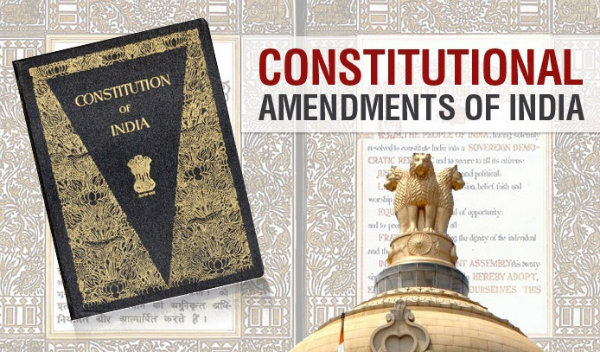
- Indian Polity - Home
- Indian Polity - Introduction
- Indian Polity - Constitution Formation
- Indian Polity - Constitution Features
- Guiding Values of the Constitution
- Indian Polity - Sources of Constitution
- Polity - How the Constitution Works
- Indian Polity - Union & Its Territory
- Indian Polity - Citizenship
- Indian Polity - Fundamental Rights
- Indian Polity - Directive Principles
- Indian Polity - Fundamental Duties
- Indian Polity - Union Executive
- Indian Polity - Union Legislature
- Indian Polity - Local Government
- Indian Polity - Judiciary
- Indian Polity - Federal System
- Indian Polity - Center State Relation
- Indian Polity - Emergency Provision
- Indian Polity - Elections System
- Indian Polity - Political Parties
- Constitutional Amendments
- Indian - Constitutional Schedules
- Indian Polity - Separation of Powers
- Indian Polity - Parts of Constitution
- Polity - International Organizations
- Indian Polity - Environment & Politics
- Indian Polity - Globalization
- Indian Polity - Popular Movements
- Indian Polity - Foreign Policy
Indian Polity - Constitutional Amendments
Under Article 368 (specific provision) of the Constitution, the Parliament is the repository of the constituent power of the Union and hence, it can amend the Constitutional provision as per the requirement/s (within the circumscribed limit).
Article 368 (1) states that notwithstanding anything in this Constitution, the Parliament may exercise its constituent power amend by way of addition, variation or repeal any provision of this Constitution in accordance with the procedure laid down in this article.

Article 368 (2) states that an amendment of this Constitution may be initiated only by the introduction of a Bill for the purpose in either House of Parliament, and when the Bill is passed in each House by a majority of the total membership of that House and by a majority of not less than two-thirds of the members of that House present and voting, it shall be presented to the President who shall give his assent to the Bill and thereupon the Constitution shall stand amended in accordance with the terms of the Bill.
Article 368 (4) states that no amendment of this Constitution (including the provisions of Part III) made or purporting to have been made under this article whether before or after the commencement of section 55 of the Constitution (Forty-second Amendment) Act, 1976 shall be called in question in any court on any ground.
Article 368 (5) states that for the removal of doubts, it is hereby declared that there shall be no limitation whatever on the constituent power of Parliament to amend by way of addition, variation or repeal the provisions of this Constitution under this article.